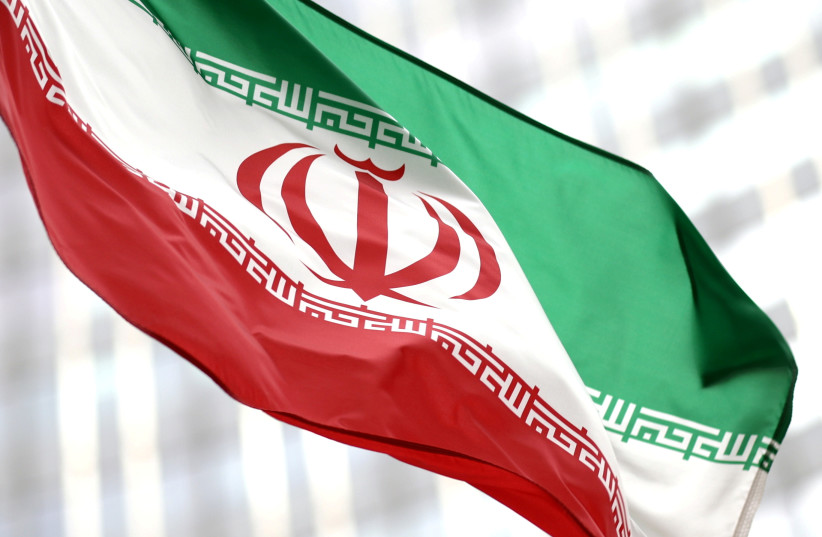Can Iran learn to tame its diplomatic arrogance? – opinion
A recent statement from Saudi Arabia and Kuwait clarified that they jointly own natural resources, including the Dorra gas field, and that they have exclusive rights to use these resources. They also urged Iran to negotiate the eastern boundary of the area in accordance with international law and good neighborly principles.
Although the Saudi-Kuwaiti statement was detailed, Iran’s swift response, addressing various concerns, caught my eye.
One issue is Iran’s persistent use of arrogance and superiority in its political discussions with its Gulf neighbors concerning contentious matters. While the rational approach is to establish countries’ and people’s legitimate rights through recognized and civilized means in contemporary international relations – such as following international law and principles of good neighborliness – Iran’s response, as conveyed by Petroleum Minister Javad Owji, takes a different tone.
He asserted Iran’s rights and interests in the Arash gas field, which Iran sees as shared with Kuwait and Saudi Arabia. He stressed that Iran won’t tolerate any infringement on its rights without showing any intention of resolving the dispute through a legal framework, or considering the principles it consistently highlights in official statements – such as cooperation and good neighborliness.
Iran needs to change its patronizing attitude with its neighbors
What really needs to change in Iran is its authoritative language and patronizing attitude when dealing with neighboring countries. This viewpoint isn’t exclusive to the Gulf Cooperation Council countries, so no one can argue that there is a difference in power dynamics or other factors. It’s a perspective that affects Iran’s international relations as a whole.
 Iranian flag flies in front of the UN office building, housing IAEA headquarters, amid the coronavirus disease (COVID-19) pandemic, in Vienna, Austria, May 24, 2021. (credit: LISI NIESNER/ REUTERS)
Iranian flag flies in front of the UN office building, housing IAEA headquarters, amid the coronavirus disease (COVID-19) pandemic, in Vienna, Austria, May 24, 2021. (credit: LISI NIESNER/ REUTERS)There’s an Iranian arrogance in global interactions, and an uncivil rhetoric devoid of diplomatic fundamentals is employed to convey Iran’s political stances. This is a concrete reality backed by numerous evidence. However, this aspect isn’t our focus here, as the general Iranian discourse comes across as disguised propaganda rather than a professional political exchange.
Even professional Iranian diplomats sometimes strike the same undertone as Revolutionary Guard leaders and sectarian militias, especially when discussing specific issues tied to divisions within Iranian regime institutions. This can become a competition to display a hard line when expressing positions in Iran.
Aside from that, Iran’s verbal tone toward its Gulf neighbors on contentious subjects often carries a hint of threat or intimidation. This doesn’t align well with the stated path of relations between Tehran and these countries.
We’re seeing improving relations between Saudi Arabia and Iran, as well as with Kuwait. Iran frequently mentions positive future plans to strengthen ties with Gulf Cooperation Council States. However, all these encouraging signs quickly vanish when it comes to a specific case or a contentious issue that could be resolved through international law or direct talks.
This is evident in the situation of the Dorra field. Particularly, because issues like cross-border gas rights have established international legal frameworks, along with similar cases, accumulated global experiences, and expertise that could be utilized to arrive at solutions or agreements that satisfy all involved parties.
As an observer, I don’t see this situation as such big a deal if the Iranian side truly believes in its own words, especially as conveyed by Petroleum Minister Owji, who professed: “I’ve consistently supported peaceful resolutions for land and maritime border issues with neighbors.”
If this is truly the consistent position of Iran, then why use the term “non-tolerance”? Especially when the other party, Saudi Arabia and Kuwait, aren’t aiming to infringe on rights, but rather expressing its perspective and vision of its rights. That’s a valid concern. At the same time, it calls for seeking a lawful resolution within the context of good neighborly principles.
Basically, Iran has the right to express its perceived rights and beliefs on various subjects. However, fostering regional security and stability, and establishing principles of goodwill and good neighborliness, will only happen if attempts to enforce a deal are abandoned, and reliance is consistently placed on understanding and internationally agreed-upon legal mechanisms for settling disputes.
Every such bilateral situation comes with established rules and principles for handling it. Addressing differing viewpoints can’t be achieved using threats or forceful language, as Iran tries to do in other regional matters. Particularly in our region, facing a fresh geopolitical landscape, there is a shared aspiration to establish peace and stability. This is essential to sustain the path of growth, and to pursue ambitious plans for modernization and advancement.
The writer is a United Arab Emirates political analyst and former Federal National Council candidate.





Comments are closed.